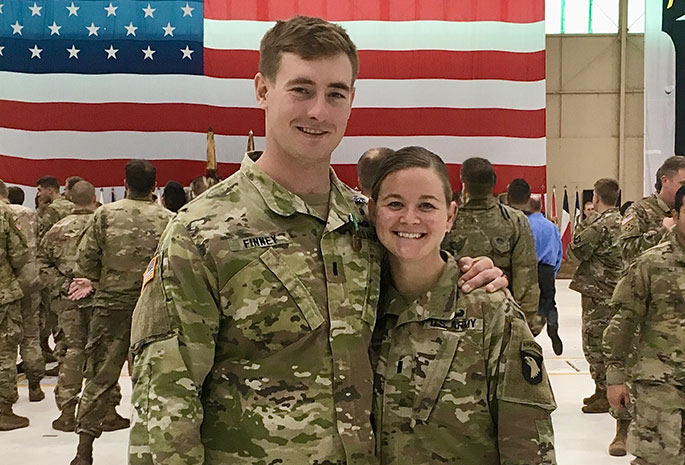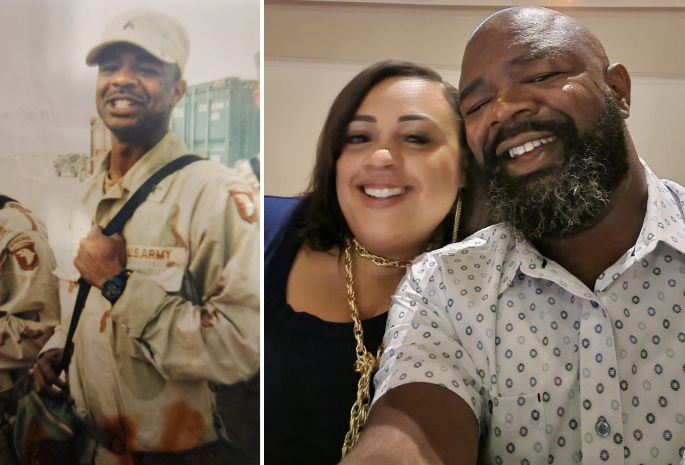As a couple, Kate and Sam are results-driven. “One thing Sam and I share is we both take on challenges in an intense way. If we’re going to do something, we want to go all in,” says Kate.
That intensity permeates every aspect of their lives. They are both accomplished athletes—Kate a swimmer and Sam a lacrosse player. They both served as captains in the Army, first meeting at West Point. They forged a relationship throughout their changing roles and locations, with Kate in field artillery and Sam in infantry. When they experienced significant losses, they barely took a breath before continuing forward. When their military service ended, they began raising a family and quickly settled into the nonstop pace of parenthood.
One thing the couple wasn’t expecting in their future? An accelerated mental health care program.
After a decade of hustle, the weight of their experiences finally caught up with them. Through the Emory Healthcare Veterans Program, the military couple finally took some much-needed time to process the disruptive impacts trauma had on their lives.




